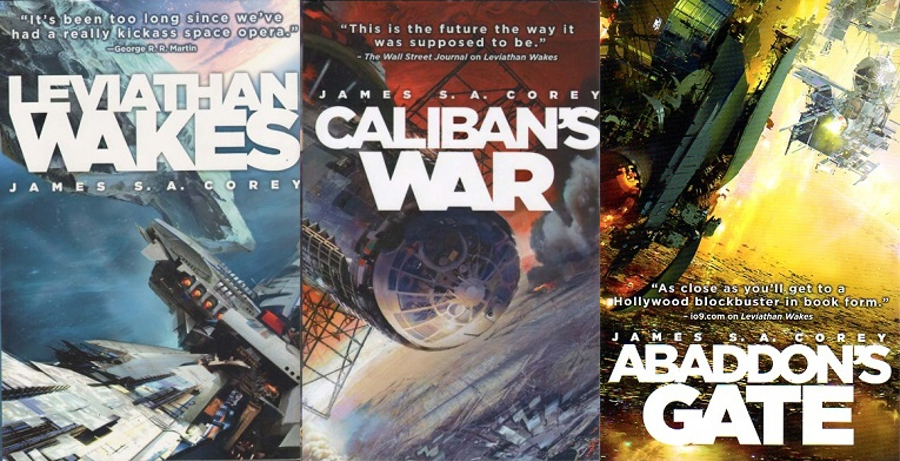february media roundup
the expanse
My first three novels of 2021 were all part of The Expanse series by written by two guys under the singular pseudonym James S.A. Corey. The series is also now airing as a big-budget TV series under the Amazon studios banner. It's set in a delicate political triumvirate with the United Nations of Earth, the militaristic Martian republic, and a scattered radical asteroid belt squirming under the heel of its inner-planet oppressors. The original worldbuilding was planned to be the backstory of an MMORPG, and it shows through a somewhat pulpy atmosphere in the book series. That said, the series is painstakingly careful in staying true to hard sci-fi principals. The only magic handwaving comes from a novel mass-reaction drive enabling more efficient engines in space, but it doesn't neglect the other realities of space travel. Time delay in talking over distances is significant, gravity comes from thrust, and rapid accelerations have consequences on crew. The TV adaptation suffers from novice acting, but it improves over time and stays faithful to the books. Small tweaks make the TV series more concurrent and select characters are folded into each other, but it is still one of the closest adaptations I've ever seen. I recommend both the books and the show to anyone excited by the space opera genre.

Covers of the first three Expanse novels
random acts of senseless violence
This is a novel by author Jack Womack about poverty told through a young protagonist's diary entries. In the beginning, our protagonist and her family are just scraping by on the outer edge of upper class life. The novel chronicles their descent into poverty as the US economy tanks from internal strife. An increasingly hostile New York City can't support them, and they begin to plinko down the social strata. The protagonist and her sister both learn their first lessons on the street as they are forced out of their cushy upscale home to a dingy apartment in a significantly worse neighborhood. Some salient points are addressed through these realities; poverty demands a constant energy expenditure of their increasingly tired parents, public transit simultaneously becomes a crucial lifeline and a debilitating time-sucking handicap. It reminded me of Kafka's Metamorphosis in a way; from our perspective the characters suffer from externalities, but to calloused outsiders they have become tainted by poverty. The novel also grapples with the complexities of being queer in such a hostile environment. This is an easy novel to recommend partially because the narrative is so straightforward. I needed to know how it ended, but from early on the tone is set and it's clear this is not going to be a story of miracles. Brace yourself for, well, senseless violence.

cover of Jack Womack's random acts of senseless violence